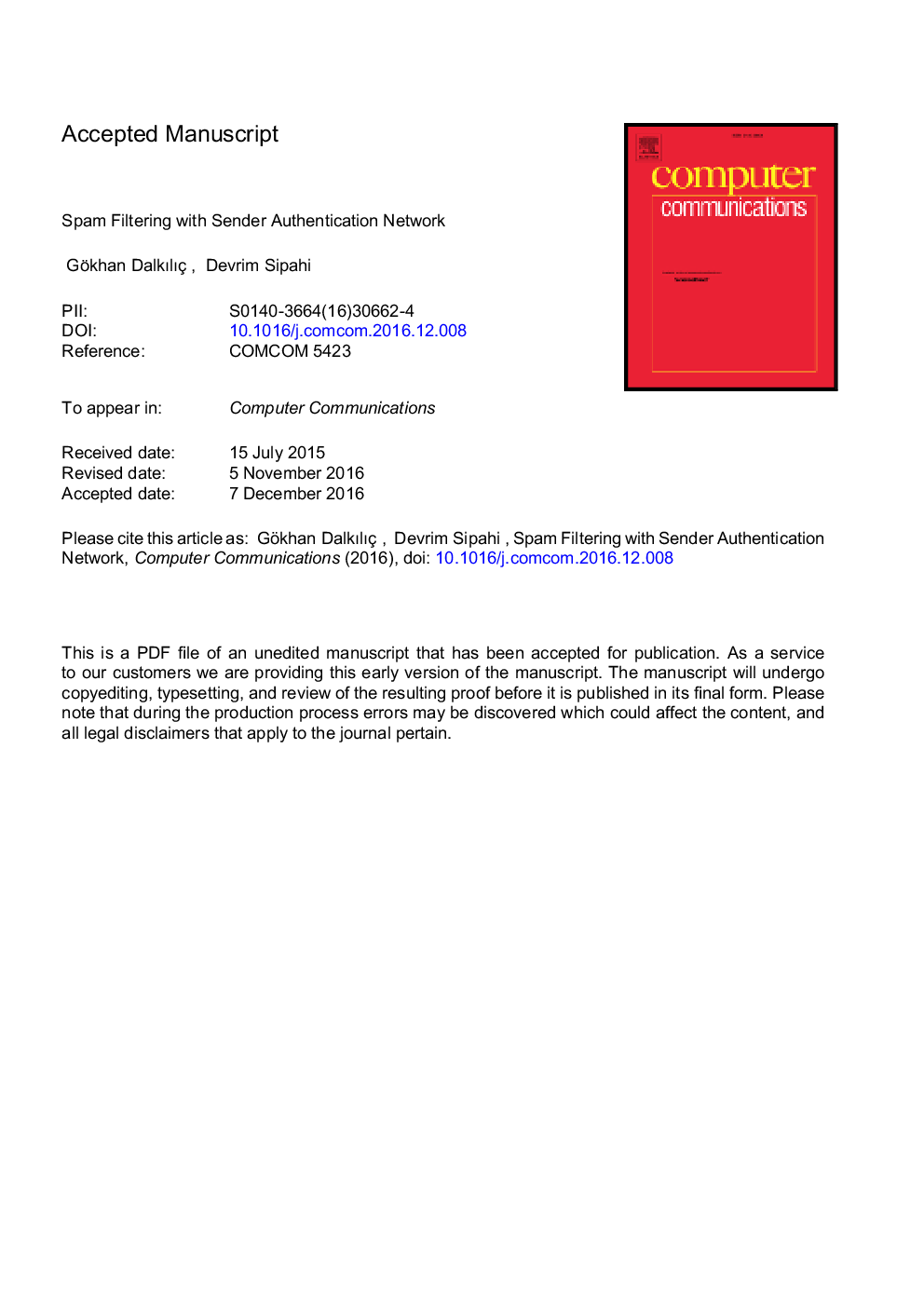| Article ID | Journal | Published Year | Pages | File Type |
|---|---|---|---|---|
| 4954485 | Computer Communications | 2017 | 28 Pages |
Abstract
Unsolicited commercial and non-commercial e-mails occupy the Internet bandwidth redundantly, as well as the recipient's time and energy. In the fight against those spam e-mails, origin based spam filtering gained importance because of the low resource demands. Sender Policy Framework (SPF) protocol is one of the well-known origin based spam filtering techniques. In our study, Sender Authentication Network has been developed to extend the narrow utilization of the SPF technique. By analyzing the IP addresses in A and MX records, their relation with the IP address in SPF record is investigated. If the SPF record does not exist, a new one is created. After getting feedbacks from the volunteers for the false-positive and false-negative results, and applying a well-known spam filter to the contemporary dataset, we concluded that by low resource consumption, our method extracts spam e-mails faster than the present popular spam filtering methods. The results have acceptable false-positive and false-negative values.
Keywords
Related Topics
Physical Sciences and Engineering
Computer Science
Computer Networks and Communications
Authors
Gökhan Dalkılıç, Devrim Sipahi,
